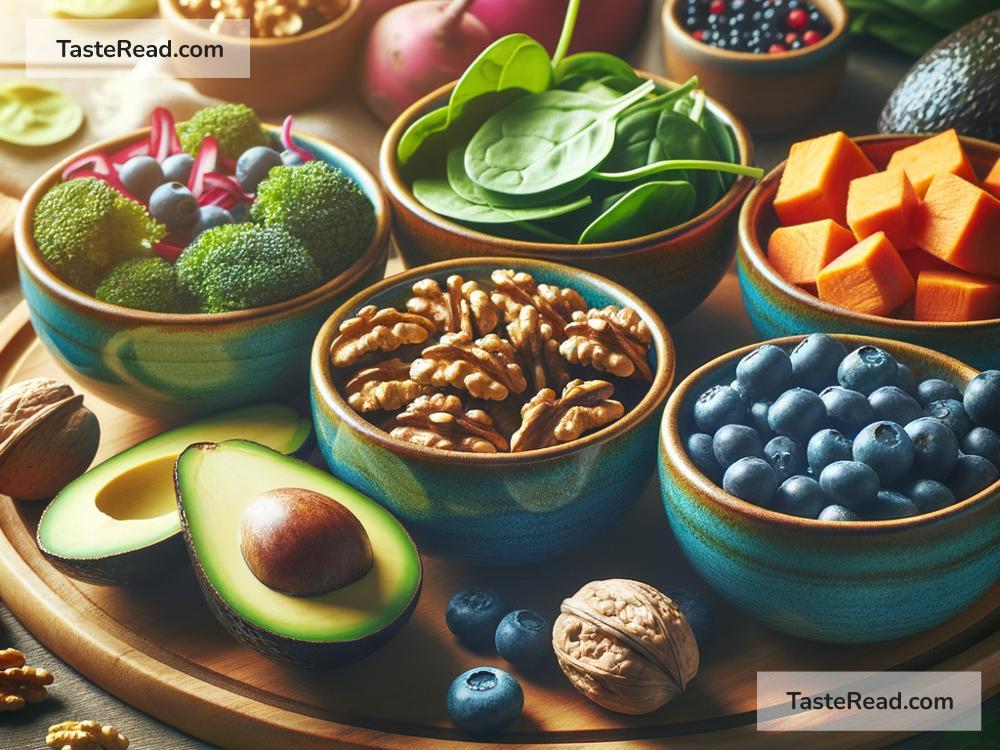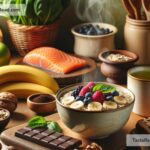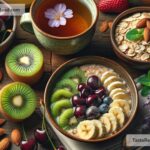Foods for Improving Skin Barrier Function: A Guide to Nourished Skin
Your skin is more than just your outer layer—it’s your body’s shield. This protective layer, known as the skin barrier, keeps good things like moisture inside and harmful things like bacteria, pollution, and irritants outside. When the skin barrier is strong, your skin looks healthy, feels soft, and glows naturally. But when it’s weakened, your skin can become dry, red, itchy, or even break out.
Fortunately, you can support your skin barrier not just with creams and serums but also through the foods you eat. In this blog, you’ll learn about simple, everyday foods that can boost your skin’s strength and keep it looking its best.
Understanding the Skin Barrier
Before diving into foods, let’s briefly touch on what the skin barrier actually is. The skin barrier is primarily made up of lipids—natural fats—and proteins that help your skin maintain moisture and shield itself from outside harm. If your skin feels rough, inflamed, or overly sensitive, it’s likely that your barrier may be damaged.
Fixing it can start with your plate. Certain nutrients play a major role in strengthening this protective layer, including healthy fats, vitamins, and antioxidants. By eating the right foods, you fuel your skin with the building blocks it needs to repair, hydrate, and protect itself.
1. Healthy Fats: The Foundation of a Strong Skin Barrier
Your skin barrier relies on lipids to stay intact, and healthy fats provide those lipids. When you don’t consume enough fats, your skin can become dry and lose elasticity. Here are some great sources of healthy fats:
- Avocados: Rich in monounsaturated fats and vitamin E, avocados can help hydrate and soothe your skin. They also support your skin’s natural oil production, which keeps the barrier functioning properly.
- Olive Oil: Extra virgin olive oil is full of antioxidants and healthy fats that combat dryness and improve skin texture. Use it as a salad dressing or drizzle some on your cooked veggies.
- Fatty Fish (like salmon, mackerel, or sardines): These are loaded with omega-3 fatty acids, which reduce inflammation and lock in moisture by supporting your skin’s lipid layer.
2. Hydrating Foods: Keep Your Skin Barrier Moisturized
Water is essential for keeping your skin hydrated, but some foods have high water content that can help maintain that hydration even more. Eating these foods regularly provides your skin with the moisture it needs to stay supple and smooth:
- Cucumber: This hydrating vegetable is mostly water and contains vitamin C, which helps repair damaged skin.
- Watermelon: Juicy and refreshing, watermelon also contains lycopene, an antioxidant that fights inflammation and dryness.
- Celery: Packed with water, sodium, and potassium, celery helps balance your body’s hydration levels, which is key for a healthy barrier.
3. Antioxidants: Shield Your Skin from Damage
Antioxidants protect your skin from harmful free radicals, which come from pollution, UV rays, and stress. Free radicals can weaken your skin barrier, making it more prone to irritation and aging. Eating antioxidant-rich foods helps build a stronger defense system for your skin:
- Blueberries: These tiny berries are full of anthocyanins, powerful antioxidants that reduce oxidative stress and keep your skin smooth.
- Tomatoes: Rich in lycopene, tomatoes help shield your skin from sun damage while supporting collagen production (a key part of what makes your skin firm).
- Dark Chocolate: Choose dark chocolate with at least 70% cacao for its antioxidants (flavonoids). Flavonoids improve circulation to your skin, boosting its hydration and health.
4. Vitamins and Minerals: The Building Blocks of Skin Health
Certain vitamins and minerals are particularly helpful for repairing and maintaining your skin barrier:
- Vitamin E: Known as the “skin vitamin,” it prevents moisture loss and protects against environmental damage. Almonds, sunflower seeds, and spinach are great sources.
- Vitamin C: This vitamin is essential for collagen production and skin repair. Find it in oranges, strawberries, kiwi, and bell peppers.
- Zinc: Zinc supports skin healing and reduces inflammation. You’ll find zinc in foods like pumpkin seeds, chickpeas, and oysters.
5. Probiotics: Gut Health Equals Skin Health
Your gut and your skin are connected. A healthy gut contributes to better digestion and nutrient absorption, which can improve skin barrier function. Foods rich in probiotics help balance the bacteria in your gut, leading to healthier skin overall:
- Yogurt: A daily serving of plain, unsweetened yogurt can nourish your gut and calm skin inflammation.
- Kimchi and Sauerkraut: These fermented foods are loaded with probiotics that boost both gut and skin health.
- Kefir: A drinkable fermented dairy product, kefir is packed with good bacteria and proteins to support your skin barrier.
6. Avoid Foods That Harm Your Skin Barrier
While adding skin-friendly foods to your diet is important, it’s equally crucial to avoid foods that can weaken your skin. Common culprits include:
- Processed Sugars: Sugar can lead to inflammation and break down collagen, making your skin less elastic.
- Fried Foods: The unhealthy oils used in fried foods may disrupt your skin barrier and cause dryness.
- Alcohol: Drinking alcohol dehydrates your body, which can lead to flaky skin and a compromised barrier.
Final Tips
Improving your skin barrier function doesn’t happen overnight, but adding these healthy foods to your daily diet can make a noticeable difference over time. Combine them with good skincare habits like using gentle cleansers and moisturizers, avoiding over-exfoliation, and drinking plenty of water.
Remember, your skin reflects your overall health. What you eat matters, not just for your skin but for your entire body. So enjoy these delicious, nourishing foods, and let your skin shine naturally!
Your skin is your biggest ally, and with the right nutrients, you can keep its barrier strong, hydrated, and glowing for years to come.


